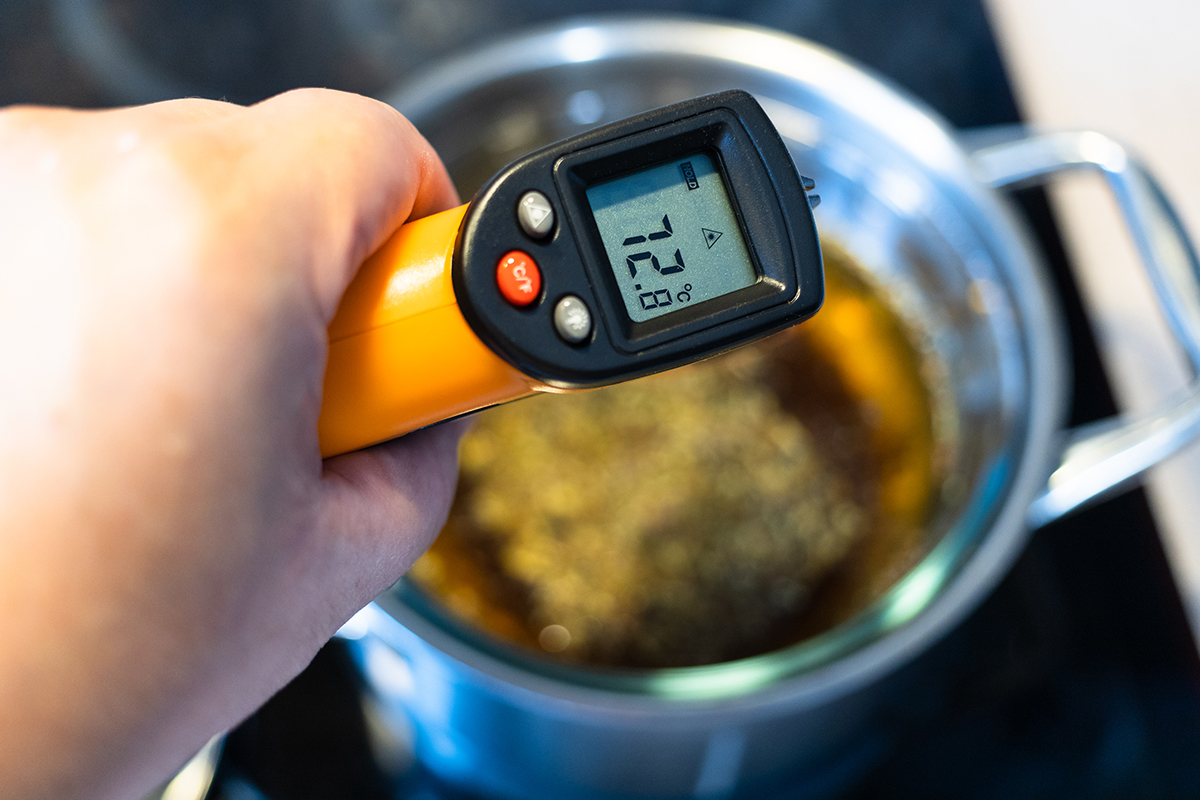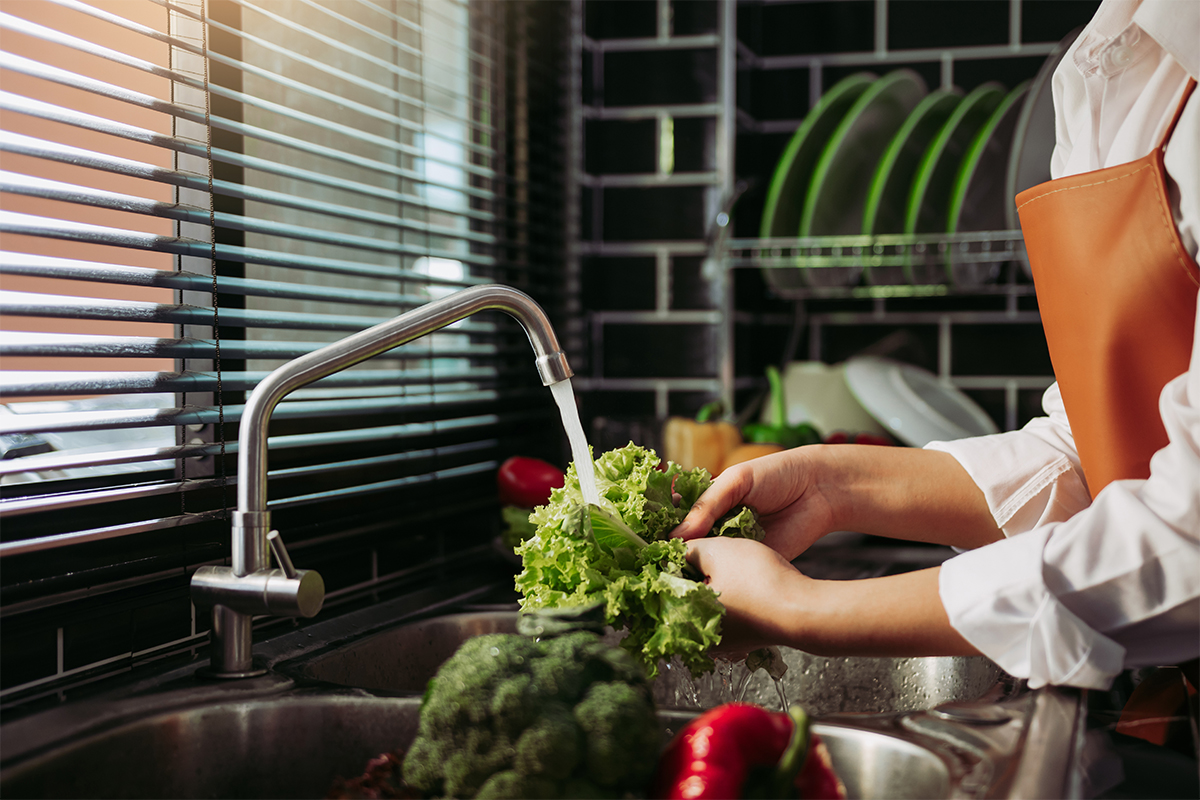Last Updated on September 19, 2024 by Admin
- What is Food Hygiene?
- Food Hygiene Definition – what do you mean by Food Hygiene?
- Tips on How to Maintain Food Hygiene at Home
- What is the range of food hygiene ratings?
- Food hygiene checklist
- What are the levels of food hygiene and safety training?
- What is the Food Hygiene Rating Scheme (FHRS)?
- Final Words
- FAQs
What is Food Hygiene?
Food-borne diseases are not uncommon. As per CDC, 48 million people suffer from food-borne ailments, while 128,000 need hospitalisation and almost 3,000 people die every year. This is the reason, maintaining food hygiene or food safety is important, as it minimizes the risks of food-borne diseases. The principle of food safety targets preventing foods from becoming contaminated and leading to health issues.
A relieving fact is that more and more people are understanding the importance of food hygiene. Healthcare professionals around the world are creating awareness regarding food contamination and safety. A lot of emphasis is also given to personal hygiene in the food industry to minimize the rate of food contamination.
But before we go into the details of food hygiene’s importance, let us understand what food hygiene is in the first place.
Food Hygiene Definition – what do you mean by Food Hygiene?:

Agents that mostly cause food contamination include bacteria, viruses, parasites and various kinds of pathogens. Consuming such contaminated food can cause food poisoning and other gastrointestinal ailments. Food hygiene does not have a specific definition. It is the practice of preparing food properly, washing, cooking, preserving, and storing foods in a manner so that there is no food contamination caused by the above-mentioned agents.
Read More – From Farm to Fork: The Crucial Role of Hygiene in Food Safety
Tips on How to Maintain Food Hygiene at Home
Here are some expert advice and essential tips for maintaining food hygiene at home:
● Make sure that you keep the raw foods and cooked foods separately
You just cannot keep raw foods and cooked foods together as there are high chances of cross-contamination. Keep the cooked foods in sealed containers and a different rack or compartment in the refrigerator. You can store the raw foods in another compartment so that even if there is dripping from the raw foods, the cooked foods are not affected.
● Practice personal hygiene
Food hygiene is incomplete without personal hygiene. This is a practice that everyone must follow for one’s well-being. Wash hands with soap and water before preparing or even serving food. Along with your hands, wash the plates, cups, bowls, spoons, etc. with soap in which you will serve food.
● For food preparation use suitable and clean kitchen tools
During food preparation, you will need different kinds of kitchen tools and equipment. Each tool is designed for a specific purpose, use it accordingly. For instance, a chopping board for meat and fish is never suitable for chopping vegetables.
Along with the chopping board, you should use a different knife and chopper as well. Wash the chopping boards and knives/choppers thoroughly after use as these are breeding grounds for bacteria, etc. leading to food contamination and poisoning.
● Refrigerate the foods which get destroyed at normal temperature
There are some food items which tend to get destroyed when not refrigerated. These items cannot withstand normal environmental heat. Make sure to refrigerate such foods (milk, meats, fish, etc.) as soon as they arrive home.
● Use salt or vinegar for washing raw vegetables and fruits
The freshest of raw fruits and vegetables contain dirt, dust particles, sand particles, or chemical residues in them. To prevent food contamination from such agents, make sure that you wash the raw vegetables and fruits with water mixed with salt or vinegar.
● Make sure that you use clean water for food preparation
Never compromise the quality of water for washing, mixing, and preparing food. Water with contaminants can call for various water-borne diseases including diarrhoea, dysentery, vomiting, stomach upsets, and so on. Always use clean, drinkable water for cooking.
● Keep away dried foods, grains, and powdered foods from liquids
The moisture content in liquids is detrimental for dried and powdered foods as well as grains. Growth of moulds is common in wet foods and it is even visible to the eyes. Therefore, keep these foods in a different place where there is no chance of moisture and water absorption.
● Make sure that the food area is clean and free from insects and pests
You will often find cockroaches, insects, rodents, or even flies in kitchen cupboards, fridge corners, or dark areas of the kitchen. These pests carry pathogens from one place to another spreading diseases along the way. Always keep the food area clean and proper so that no pests or harmful insects are lurking anywhere.
● Cook food to an appropriate temperature for destroying pathogens
An important food hygiene practice is cooking food to a suitable temperature for destroying pathogens. When meats and eggs are not cooked properly, it might lead to E. coli and salmonella infections. Make sure that when you cook meats like beef, pork, chicken, and sausages, cook for a longer time till the pink traces on the flesh, joints, and bones disappear.
● Wash the racks and kitchen towels frequently
Kitchen racks and towels are favourite breeding grounds for bacteria, parasites, etc. as they remain wet from continuous use. Make sure that you wash and sanitize these to keep germs and pathogens at bay. Most importantly, try sun drying the towels and napkins to remove all kinds of disease-causing germs.
● Clean the kitchen counter and the kitchen floor after cooking
Wash the kitchen counter and the floor thoroughly after preparing food so that no food particles remain on the counter or the floor for attracting cockroaches, rodents, flies, and other kinds of insects.

What is the range of food hygiene ratings?
FSSAI’s food hygiene rating system typically ranges from 0 to 5, with each score reflecting the cleanliness and safety of food establishments.
- 0: Urgent improvement is necessary.
- 1: Major improvement is needed.
- 2: Improvement is necessary.
- 3: Generally satisfactory.
- 4: Good.
- 5: Very good.
This rating is based on factors such as food handling, storage, preparation, cleanliness, and the condition of the building. The higher the rating, the better the hygiene standards in the establishment.
Food hygiene checklist
A food hygiene checklist includes:
- Sanitation: Ensure surfaces, utensils, and equipment are clean and sanitized.
- Temperature Control: Ensure food is stored and cooked at safe temperatures to prevent bacterial growth.
- Personal Hygiene: Ensure staff wash hands regularly and wear clean clothing.
- Pest Control: Inspect for signs of pests and maintain effective control measures.
- Food Storage: Store food items properly, segregating raw and cooked products to avoid cross-contamination.
Regularly reviewing this checklist helps maintain high food safety standards.
What are the levels of food hygiene and safety training?
Food hygiene and safety training typically includes several levels:
- Level 1: Basic hygiene awareness for food handlers, covering essential practices like hand washing, cleanliness, and safe food storage.
- Level 2: Intermediate training for those involved in food preparation, focusing on food safety procedures, temperature control, and preventing contamination.
- Level 3: Advanced training for supervisors and managers, emphasizing risk assessment, HACCP (Hazard Analysis Critical Control Point) principles, and management of food safety systems.
- Level 4: Expert-level training for those responsible for designing and implementing food safety policies and systems.
What is the Food Hygiene Rating Scheme (FHRS)?
The Food Hygiene Rating Scheme by FSSAI is a voluntary Food Hygiene Rating Scheme for food businesses. Under this initiative the food products are rated based on the compliance with food safety and hygiene requirements laid under Part V of Schedule 4 of Food Safety and Standards Amendment Regulation, 2018 for food businesses. FHRS is a great initiative encouraging the importance of food hygiene. This initiative helps food businesses with self compliance and showcase their food safety measures to gain customers’ trust. Food businesses willing to opt for the FHRS can undergo an online self-assessment that is reviewed by the Hygiene Rating Audit Agencies.
Final Words
Along with understanding the importance of food hygiene or food safety, you must know about the food hygiene and safety pillars including cleaning and sanitizing, food storage, personal hygiene in the food industry, food handling and temperature control. With such preventive and precautionary steps, you can keep food contamination at bay. Proper food handling and maintaining food hygiene is also necessary to prevent food-borne infections and ensure the well-being of your loved ones.
Read More – A Food Handler Guide to Personal Hygiene
FAQs
Ten essential kitchen hygiene rules are:
- Wash hands before handling food.
- Keep work surfaces clean.
- Use separate chopping boards for raw and cooked foods.
- Store food at correct temperatures.
- Cook food thoroughly.
- Wash fruits and vegetables.
- Avoid cross-contamination.
- Clean utensils after each use.
- Dispose of waste properly.
- Wear clean clothing and tie back hair when cooking.
These practices ensure food safety.
The five key principles of food hygiene are:
- Keep Clean: Wash hands, utensils, and surfaces regularly.
- Separate Raw and Cooked Foods: Avoid cross-contamination.
- Cook Thoroughly: Ensure food is cooked at safe temperatures.
- Store Food at Safe Temperatures: Refrigerate perishables promptly.
- Use Safe Water and Ingredients: Ensure all water and raw materials are clean and safe for consumption.
These principles help prevent foodborne illnesses.
The 5 C’s of food hygiene are:
- Cleaning: Keep hands, surfaces, and utensils clean to prevent contamination.
- Cooking: Cook food thoroughly to kill harmful bacteria.
- Chilling: Store food at proper temperatures to prevent bacterial growth.
- Cross-contamination: Avoid cross-contamination between raw and cooked foods.
- Communication: Ensure proper food hygiene practices are communicated and understood by all food handlers.
These points help maintain food safety and hygiene standards.







